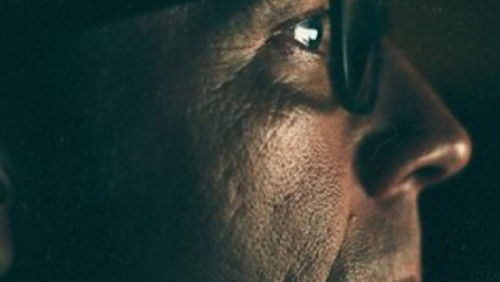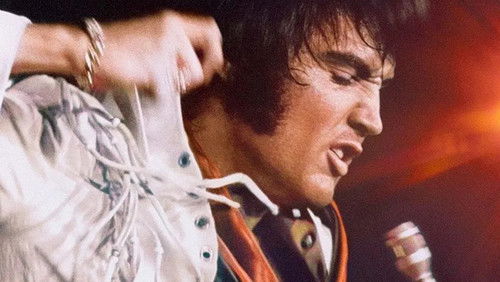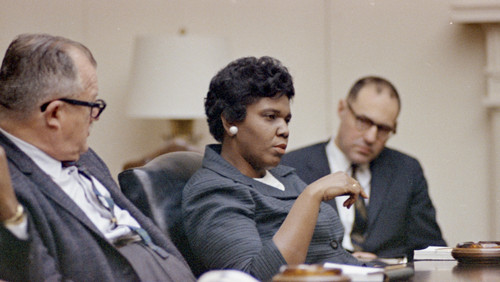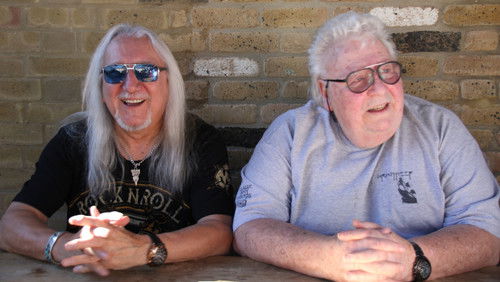The Oslo Diaries (2018)
57KThe Oslo Diaries: Directed by Mor Loushy, Daniel Sivan. With Yussuf Abu-Warda, Yasser Arafat, Hanan Ashrawi, Omer Barnea. A group of Israelis and Palestinians come together in Oslo for an unsanctioned peace talks during the 1990s in order to bring peace to the Middle East.
“I didnu0026#39;t know what to expect of this documentary, particularly considering that Iu0026#39;m well-versed in the history of the region and some of the reviews (one previously here on IMDB that has since been removed) criticized this film because of its anti-Arab/pro-Israel bias. To be sure, this is a film made by Israeli filmmakers and those on the Israeli side comprised a larger percentage of those interviewed, as more-or-less Abu Alaa (Ahmed Qurei) was the principle Palestinian interviewed for this film. That said, the film puts more blame on the Israelis than is justified. The Arab obstacles to peace – and the incitement and encouragement by the Palestinian Authority that promoted suicide bombers in the 1990s and into the early 2000s wasnu0026#39;t discussed in the slightest. Arafatu0026#39;s duplicity is not raised even in a footnote. The one comment made by one of the Palestinians interviewed (Saeb Ekrat, I believe) is that the Israelis killed the peace process through the assassination of Yitzchak Rabin. While scenes of blown up buses and carnage throughout the streets of Israel were shown, no mention of the link between the Palestinian-State Sponsorship of that violence – justified or otherwise – was remotely suggested. And thatu0026#39;s a fact. I say this to underscore that there is bias here, but it is anything but anti-Palestinian.u003cbr/u003eu003cbr/u003eThat said, the contribution of this film is not the exhaustive and principled explanation of the Israeli-Palestinian peace process, but rather the insight into negotiations of that process that took place from the diaries that were kept contemporaneously with the initially secretive Oslo meetings that began in 1993. This documentary is not meant to be the definitive work on this subject, but rather an insight into the subjective minds of those involved in attempting to do something historic and unprecedented. While the accusation from Mr. Ekrat is that the Israelis killed the peace process with the death of Mr. Rabin, there is no mention, for example, of the two-state solutions offered by Prime Ministers Ehud Barak and Ehud Olmert, after the first Netanyahu administration fell. No metnion is made of the Camp David accords in final six months of President Clintonu0026#39;s second term nor of the work that Dennis Ross continued well into President George W Bushu0026#39;s administration. In a word, it is far too reductive to blame the failure of the peace process on the assassination of Rabin, as the peace-loving left in Israel continued to believe that peace was obtainable until 2006 in which Hamas – hell-bent on the destruction of Israel and in stark opposition to peace– won the Palestinian elections by a landslide. Of course, no one wants to talk about that, and itu0026#39;s easier to hate Netanyahu (not hard to do) than it is to appreciate the insidious obstacles to peace. Since then, everything has been more of a mess than it already was. The West continues to extol the virtues of democracy and elected governance only when those who are elected share the values and the ends that it seeks to achieve. When Hamas rose to power, the Quartet pretended that Hamas didnu0026#39;t exist, when everyone in power from every side knows that no peace agreement will ever be worth the paper it is written upon without the assent of the most violent and militant among the opposition. Look at the IRA in Northern Ireland. When it decided that the war was over, there has literally been no more conflict. At all. The same would have been possible had Hamas come to the table. Now, however, with the settlers and the emboldened Right in Israel, who knows when the next opportunity may present itself? Still, make no mistake: there were a good 10 years after the assassination of Rabin where peace – at least from the Israeli side – was not only possible, but actively supported by the majority. Even with Ariel Sharon in office, a peace offering would have been made, and in fact was his reason for breaking from the Likud party (Netanyahuu0026#39;s party, which Sharon helped to found) and forming a brand-new party called Kadima. None of this is addressed in the film. So no one should look at this film as the dispositive authority on the historical narrative and accuracy of the peace process. For what it is, however, it is a fascinating behind-the-scenes look at how a moment of hope blossomed, if for just a moment, in the dark history of a tragic and unnecessary conflict.”









